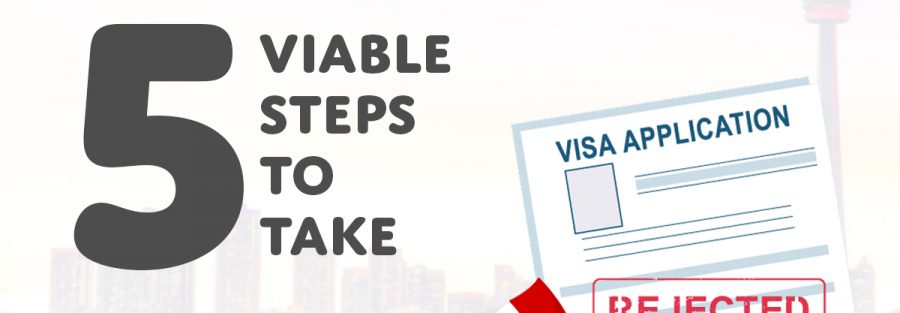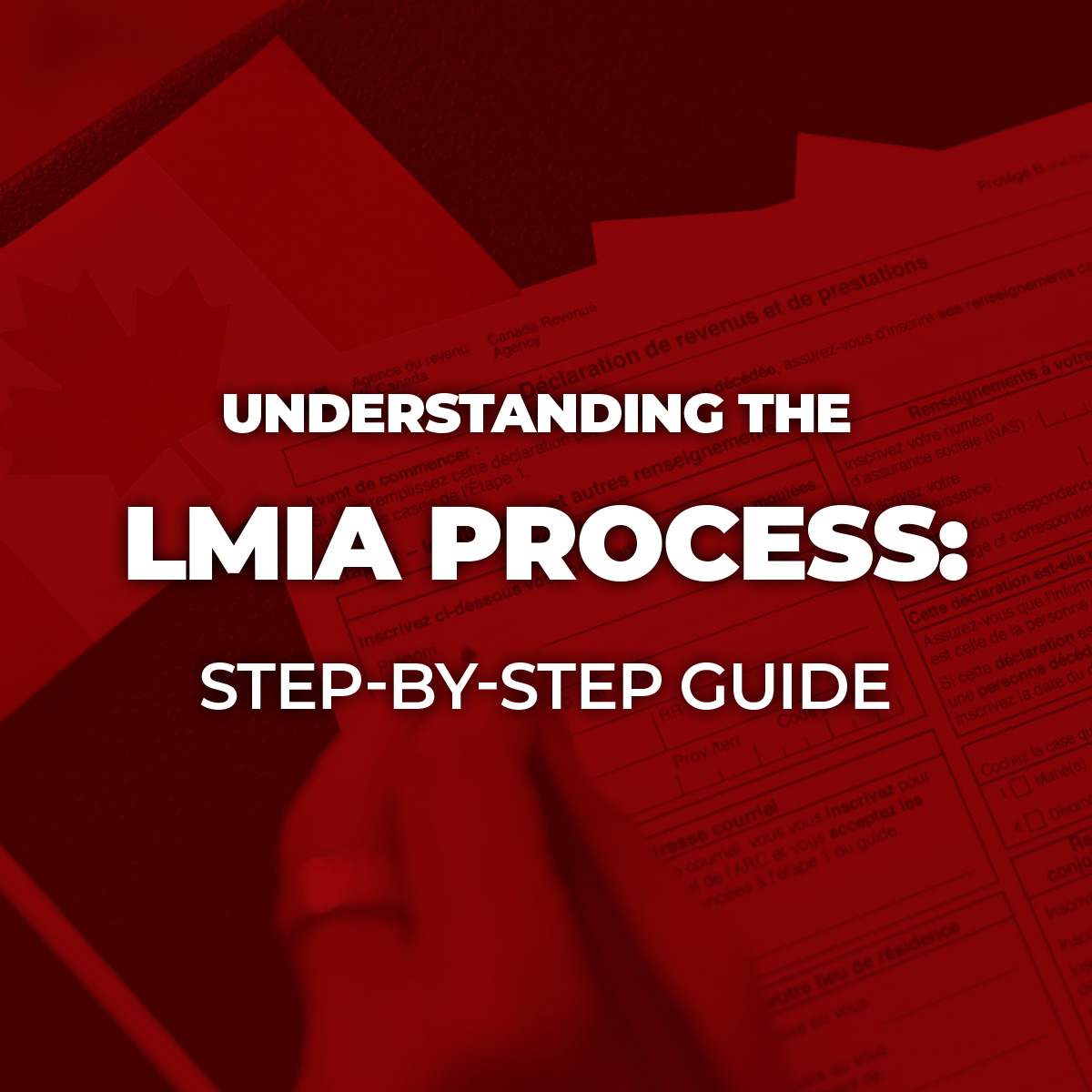Canada has become a popular destination for international students with more than 800,000 students currently studying in the country. In 2022 alone, over 550,000 students were granted permission to study in Canada. The number of students with Canadian student visas has increased more than four times in the past 21 years.
However, obtaining a Canadian student visa is not always a smooth process. Some students may face the unfortunate situation of having their visa application refused. This can be a frustrating and disheartening experience, but it’s not the end of the road. There are several steps that you can take to address Canada refused student visa and increase your chances of securing it. In this article, we will discuss five viable steps that you can take if your Canada student visa application has been refused.
Why is a Canada Student Visa Rejected?
A Canada student visa application can be rejected for various reasons by the Immigration, Refugees and Citizenship Canada (IRCC). One common cause for rejection is insufficient funds to pursue higher education in Canada or insufficient proof of intent to return to their home country after completing their program.
An applicant’s immigration agent may have been slow in gathering and submitting the required forms. In such cases, it’s better to seek the help of Regulated Canadian Immigration Consultants (RCICs) who are licensed to provide immigration-related services and can evaluate your forms for any errors or omissions. This reduces the chances of rejection by IRCC.
Reasons for Canada Student Visa Refusal
Study Plan: One of the most common reasons for refusal of a Canadian study visa is a lack of a logical and detailed study plan. The Canadian immigration officer must be convinced that the main purpose of the applicant’s visit to Canada is for studying. If a student already has previous post-graduate education or work experience, there must be a logical progression of studying, and the choice of program in Canada must make sense.
Proof of Funds: Another reason for refusal is insufficient proof of finances. The Canadian government wants to ensure that a student has sufficient financial support to pay for their tuition and living expenses. You must possess a fund statement of at least 4 months to obtain a study permit in Canada. Funds also vary depending on accompanying family members.
Inconsistent Academic Records: Your academic qualifications are an important aspect of your student visa application. You will be required to provide your educational documents, including transcripts and mark sheets which serve as evidence of your prior degrees or certifications. If your education documents are inconsistent, the visa officer may refuse your application.
Strong Family Ties to Canada: It may come as a surprise, but having family members in Canada can actually lead to a Canada refused student visa.
However, our firm has the expertise to overcome this obstacle for you.
Additionally, illegal status in the country of residence, lack of employment prospects in the home country, current employment situation, personal assets, documents that do not appear authentic, history of overstaying status on a previous visit to Canada, and other reasons can also result in visa refusal.
5 Steps You Can Take When Your Canada Student Visa is Refused
Receiving a refusal letter for your student visa can be a devastating blow to your dreams of pursuing higher education in Canada. However, it’s not the end of the road. Many students face visa refusals for various reasons but it’s essential to understand that there are steps you can take to address the issue.
It’s crucial to read the refusal letter carefully, assess your documents and situation, and decide on your Canada student visa refusal appeal. While the process may seem daunting, it’s essential to remain focused and positive.
1. Read the Refusal Letter Carefully
If you have received a Canada student visa refusal letter, it is important to read it carefully and thoroughly. The refusal letter provides you with an understanding of why your application was refused and what you can do next. It is essential to take your time and carefully read the letter before taking any further steps.
-
- Find a quiet and comfortable environment where you can read the letter without any distractions. The refusal letter gives specific reasons why your application was refused. Carefully reading the refusal letter can help you identify any errors that may have occurred during the application process.
-
- Take notes on the reasons for refusal and any suggestions provided for future applications. This will help you to understand the refusal and make improvements for future applications.
Receiving a refusal letter can be overwhelming and cause panic. If you are unsure about any aspect of the refusal letter, seek advice from qualified immigration consultants. They can provide guidance on the next steps you should take.
2. Judicial Review
A judicial review is a legal process through which a court examines the lawfulness of a decision made by Canadian immigration authorities. It can be a useful option to consider if you believe that your case was genuine but your application was unfairly refused.
However, it is important to note that a judicial review can be a time-consuming and expensive process. The fees for handling a matter can range from $5000 to $10000, depending on the lawyer you choose. Additionally, there is no guarantee that a judicial review will result in a favorable outcome and it should only be pursued if you have strong grounds for challenging the decision.
If you believe that your case was unfairly refused, it is important to consult with experienced immigration consultants like Jet Immigration to assess your options and determine the best course of action for your situation.
3. Examine all the documents properly
Reviewing all the documents submitted during your student visa application process is crucial. Not only will it help you identify any errors or discrepancies, but it will also allow you to ensure that your consultant submitted them properly. Unfortunately, there have been cases where consultants submitted the documents improperly, leading to the rejection of the visa application.
By reviewing the documents yourself, you can catch any errors or omissions and rectify them before submitting the reapplication. So, take the time to go through each document and double-check that everything is in order. It’s better to be safe than sorry.
4. Reassess your situation
Reassessing your situation is an important step when your Canada student visa is refused. Take the time to identify areas where you can improve your application and increase your chances of success. This may include:
-
- Improving your IELTS score: If your language proficiency was a factor in your visa refusal, consider retaking the IELTS exam and aim to achieve a higher score.
-
- Changing colleges or courses: If your choice of college or course was not convincing enough to the visa officer, consider researching and selecting a more suitable institution and program that aligns with your academic and career goals.
-
- Providing better justifications: Sufficient justifications for your study permit application are crucial. Take the time to re-evaluate your reasons for pursuing education in Canada. Prepare a more compelling statement of purpose that addresses the visa officer’s concerns.
Remember, reassessing your situation does not mean giving up on your dreams of studying in Canada. It means taking a step back, analyzing your situation, and taking the necessary steps to improve your chances of success.
5. Re-apply
Reapplying for a Canada student visa may be a better option than going through the time-consuming and expensive process of judicial review. It can be helpful to seek a second opinion from another experienced consultant. A second opinion can offer you fresh insights into your case and the consultant may be able to identify issues that your previous consultant overlooked.
However, it’s essential to be cautious when seeking a second opinion, as not all consultants may have your best interests in mind. Do some research to find a reputable consultant who has experience in dealing with Canada student visa refusals.
Still not sure what to do? Looking for a second opinion?
If you’re seeking a second opinion, Jet Immigration can help. With over 45 years of experience in Canadian immigration industry, our team of experienced consultants can provide you with valuable insights and guidance on how to improve your chances of obtaining a student visa.
If your case has been refused and if you’ve been looking for a second opinion, you can set up a free consultation session with Jet Immigration.



